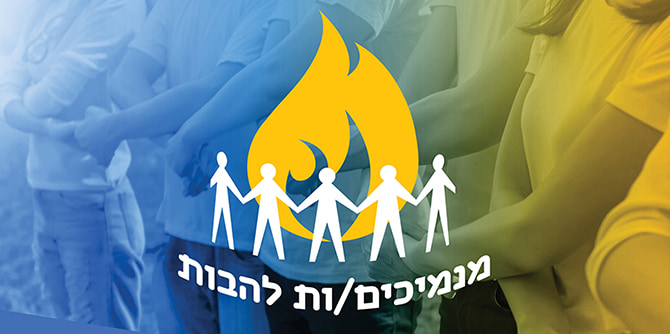In recent months, Israeli news sites and channels have been full of contentious reports. In the world that they portray, demonstrators against the prime minister are spreading the coronavirus, Haredi Jews are responsible for high infection rates, and Arab citizens are refusing to comply with social distancing measures. Israel's public arena is rife with a sense of alienation, due to the repeated lockdowns and to the pandemic itself. Since March 2020, young people have found themselves with no regular educational framework, whether formal or non-formal. Living their lives online exposes them to risky behaviors, and increases feelings of loneliness and alienation. As indicated in a recent report on youth in Israel by Israel's Ministry of Labor, Social Affairs and Social Services, there has been a rise of 2.5% in feelings of loneliness among young people in the last quarter of 2020, as well as a rise of 4.5% in depression and anxiety.
In light of this worrying situation, the graduates of the
Mandel Youth Leadership Program, who play leading roles in Israel’s youth movements and youth organizations, arranged a social intervention for the members of their organizations and movements. The graduates invited these young people to think together about different forms of alternative discourse – respectful discourse that will take responsibility for the current reality and for the future of the State of Israel.

On the evening of December 20th, International Human Solidarity Day, an online event titled “Quelling the Fire” and led by graduates of the Mandel Youth Leadership Program brought together some 300 young people from Israel’s diverse population groups – religious and secular, Arab and Jewish. The event was designed to provide a forum that would enable young people to meet with their counterparts from different backgrounds and to help alleviate the general sense of alienation between the different population groups in Israel. Participants in the bilingual event shared their experiences during this challenging period, and collaborated on proposals for holding more respectful discourse. Former education minister
Rabbi Shay Piron and the director general of the President’s Residence,
Harel Tobi, also addressed the participants, congratulating them on the important initiative and encouraging them to continue their efforts for the good of Israeli society.
The successful event was directly beneficial for the young people who participated, who are influencing the educational agenda in Israel, and created ripples that strengthen the network of the Mandel graduates, enabling them to dream, create, and lead change. Quelling the fire of adversarial discourse is just the beginning of this change.
